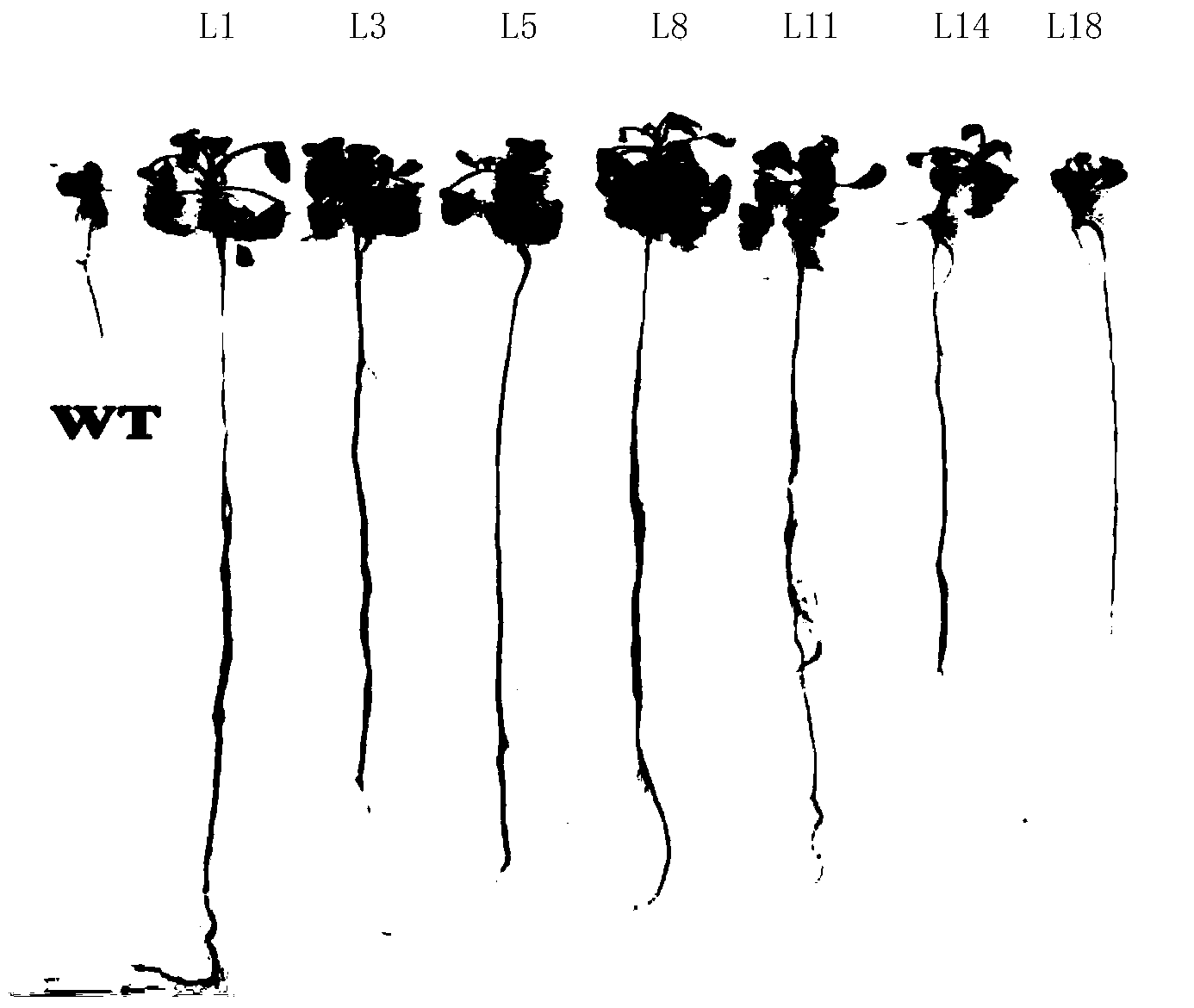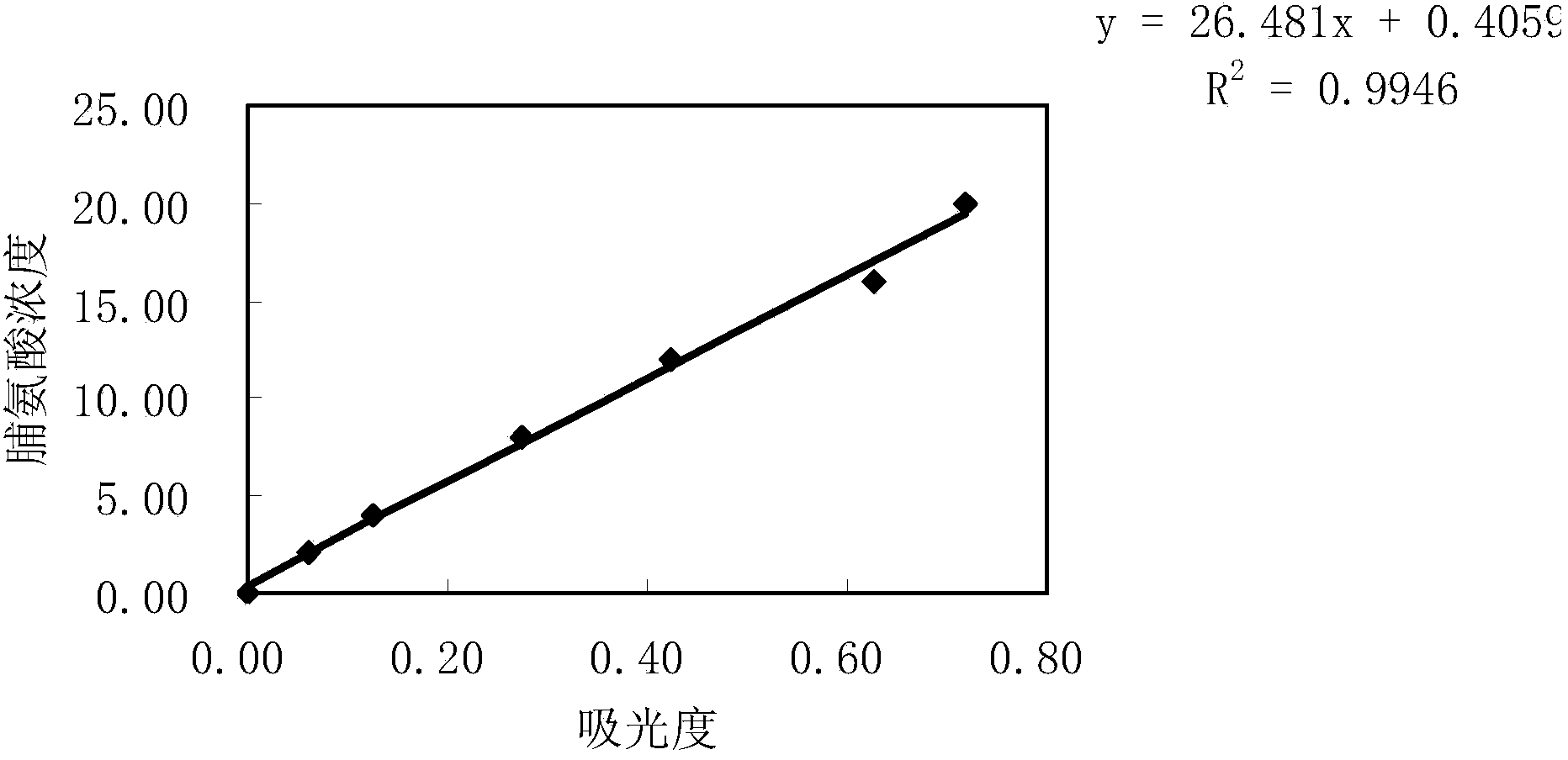Plant salt tolerance-related protein IbERD3 as well as encoding gene and application of plant salt tolerance-related protein IbERD3
A plant and gene technology, applied in the direction of plant gene improvement, application, plant peptides, etc., can solve problems affecting food production and restrictions, achieve broad application space and market prospects, increase salt tolerance, and increase plant height.
- Summary
- Abstract
- Description
- Claims
- Application Information
AI Technical Summary
Problems solved by technology
Method used
Image
Examples
Embodiment 1
[0026] Embodiment 1, the acquisition of IbERD3 protein and its coding gene
[0027] Sweet potato salt-tolerant mutant LM79 (LM79 for short): References to this biological material: He Shaozhen. In vitro screening of sweet potato salt-tolerant mutants and cloning of salt-tolerant candidate genes. Doctoral dissertation of China Agricultural University, 2008.
[0028] 1. Extraction and purification of total RNA from leaves
[0029] About 2 g of expanded leaves of LM79 sterile seedlings were taken, ground into powder in liquid nitrogen, added to a 10 mL centrifuge tube, and total RNA was extracted with the Applygen Plant RNA Extraction Kit (Applygen Technologies Inc, Beijing). mRNA was purified from total RNA using the QIAGEN Oligotex Mini mRNA Kit (QIAGEN, GmbH, Germany). Take 1 μL of mRNA for 1.2% agarose gel electrophoresis to detect its integrity, and take another 2 μL of mRNA to dilute to 500 μL, and use a UV spectrophotometer to detect its quality (OD 260 ) and purity (OD ...
Embodiment 2
[0056] Embodiment 2, the application of IbERD3 protein in improving plant salt tolerance
[0057] 1. Construction of recombinant plasmid pCBIbERD3
[0058] 1. Synthesize the double-stranded DNA molecule shown in sequence 2 of the sequence listing.
[0059] 2. Using the double-stranded DNA molecule synthesized in step 1 as a template, a primer pair composed of F1 and R1 is used for PCR amplification to obtain a PCR amplification product.
[0060] F1: 5'- AGATCT ATGGCGATTTCGG-3' (underline marks the recognition sequence of Bgl II digestion);
[0061] R1: 5'- CACGTG TTATGAACTGGCATTT-3' (underlined Pml I enzyme recognition sequence).
[0062] 3. The PCR amplification product obtained in step 2 was double digested with restriction endonucleases Bgl II and Pml I, and the digested product was recovered.
[0063] 4. Digest the pCAMBIA3301 vector with restriction endonucleases Bgl II and Pml I to recover a vector backbone of about 9284bp.
[0064] 5. Ligate the digested product...
PUM
 Login to View More
Login to View More Abstract
Description
Claims
Application Information
 Login to View More
Login to View More - R&D
- Intellectual Property
- Life Sciences
- Materials
- Tech Scout
- Unparalleled Data Quality
- Higher Quality Content
- 60% Fewer Hallucinations
Browse by: Latest US Patents, China's latest patents, Technical Efficacy Thesaurus, Application Domain, Technology Topic, Popular Technical Reports.
© 2025 PatSnap. All rights reserved.Legal|Privacy policy|Modern Slavery Act Transparency Statement|Sitemap|About US| Contact US: help@patsnap.com



